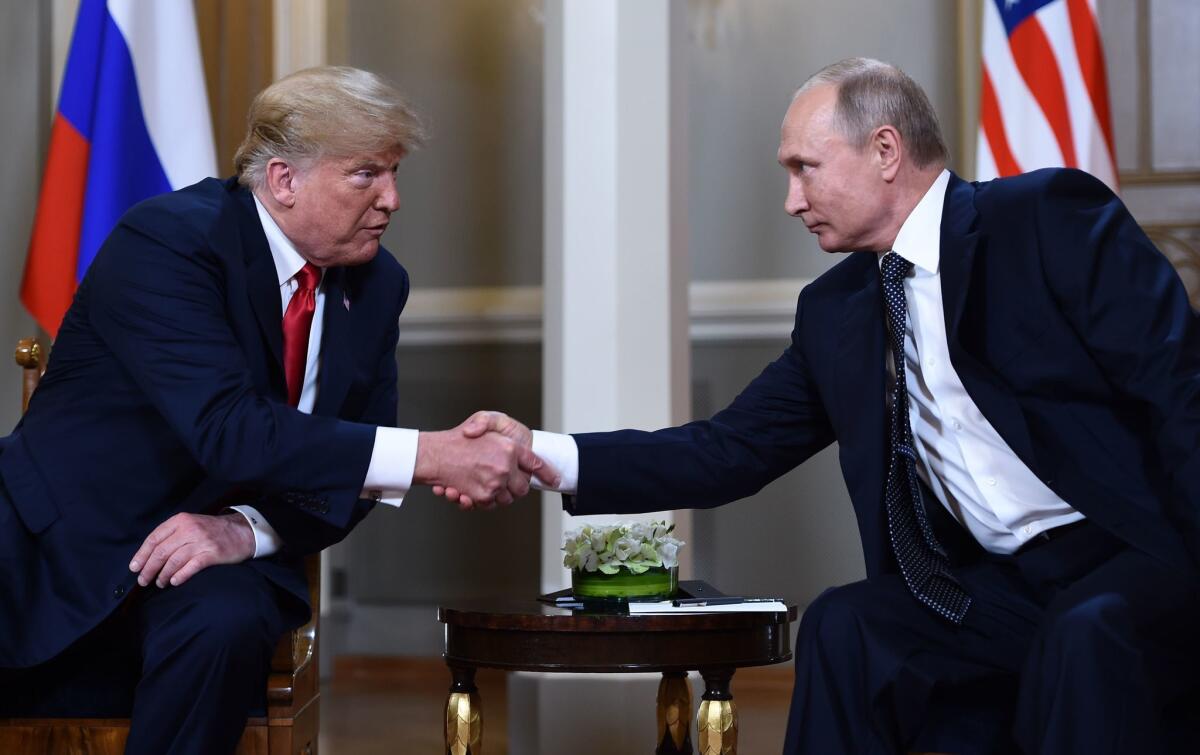Letters to the Editor: Why Russia deserves blame for U.S. withdrawal from arms-control treaties

To the editor: The L.A. Times Editorial Board frames the U.S. exit from the Intermediate-Range Nuclear Forces Treaty and the Open Skies Treaty as a Trump administration assault on arms control. The problem is not the current administration alone but Russian noncompliance.
In the Obama administration’s final arms control compliance report, the State Department declared, “The United States has determined that in 2015, the Russian Federation continued to be in violation of its obligations under the INF Treaty not to possess, produce, or flight-test a ground-launched cruise missile (GLCM) with a range capability of 500 km to 5,500 km, or to possess or produce launchers of such missiles.”
Efforts to get Moscow back into compliance failed then and now.
On Open Skies, Russia has breached an agreement that I helped negotiate as a State Department foreign affairs officer. Contrary to the view that U.S. withdrawal is “insane,” Open Skies never was a significant contributor to arms control or intelligence, and its contribution to confidence building has been undermined by Moscow’s violative behavior.
Bennett Ramberg, Los Angeles
The writer served as a foreign affairs analyst in the State Department Bureau of Political-Military Affairs in the George H.W. Bush administration.
..
To the editor: Compared to our current crises, nuclear treaties may seem a back-burner issue. But President Trump’s withdrawal and threats to leave multilateral treaties with Russia and Iran, signed by presidents of both parties, will isolate us and remove important constraints on the use of nuclear weapons in war.
Combined with his plans to develop new hypersonic missiles and resume nuclear weapons tests, there is real reason for alarm.
As someone who is old enough to remember the aftermath of Hiroshima and the ensuing nuclear arms race, I hope that the importance of weapons agreements to our global future will play a major role in election debates. Our survival could depend on it.
Dee Abrahamse, Long Beach
More to Read
A cure for the common opinion
Get thought-provoking perspectives with our weekly newsletter.
You may occasionally receive promotional content from the Los Angeles Times.










